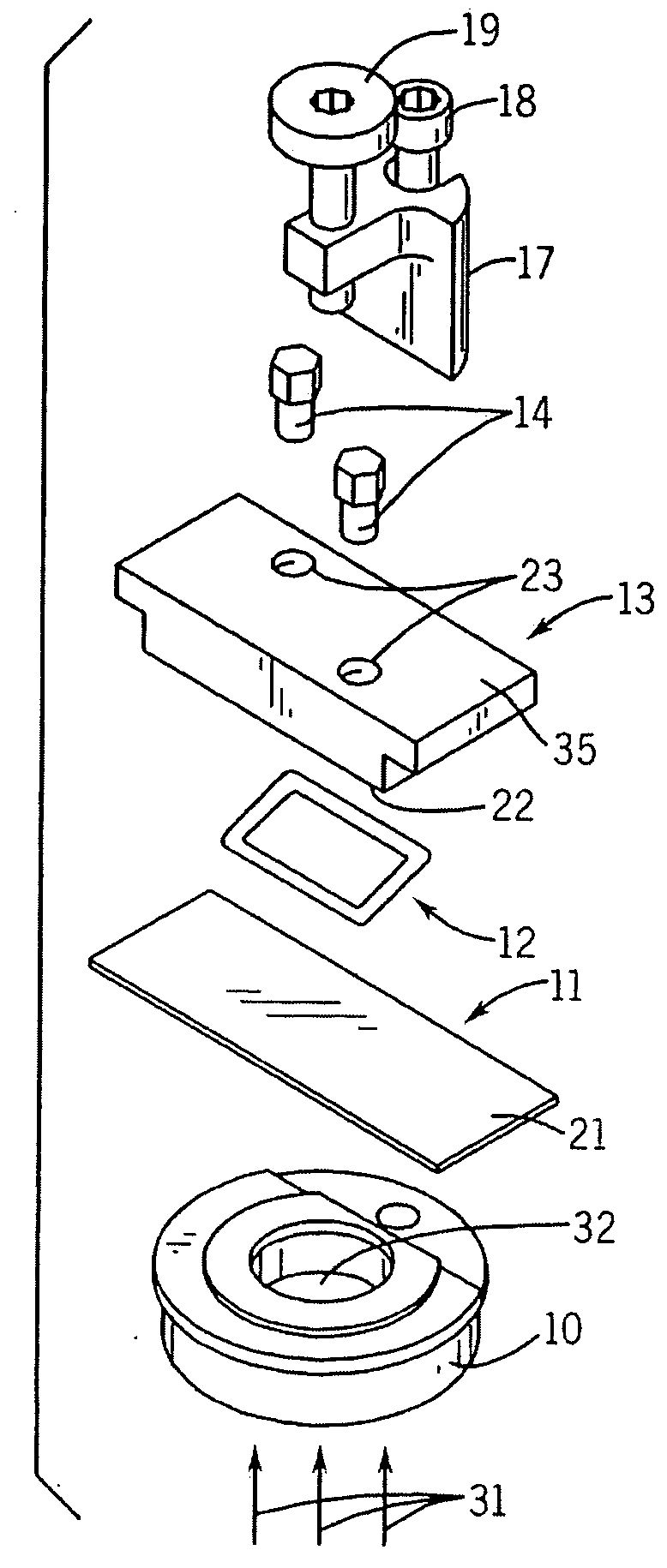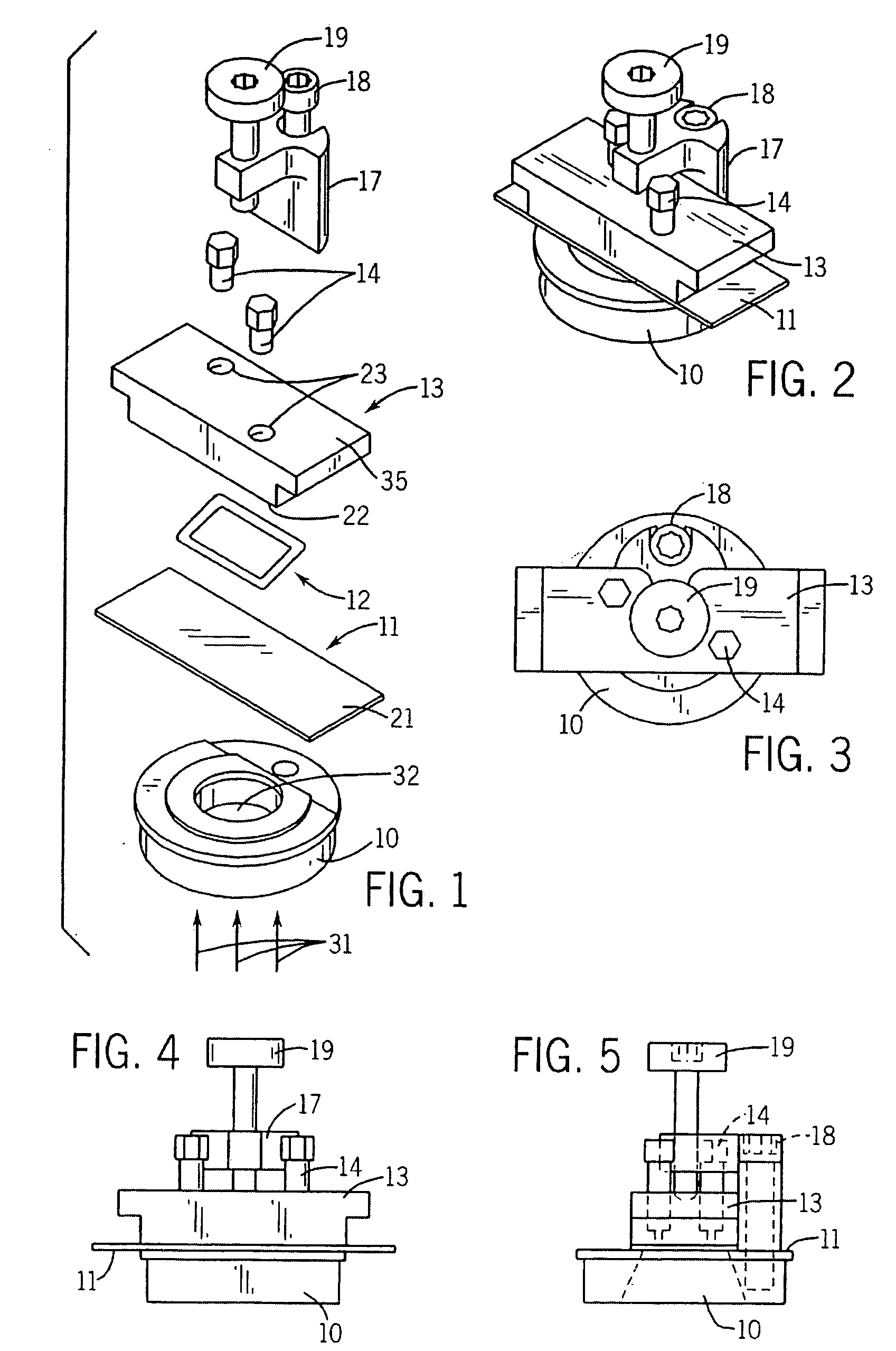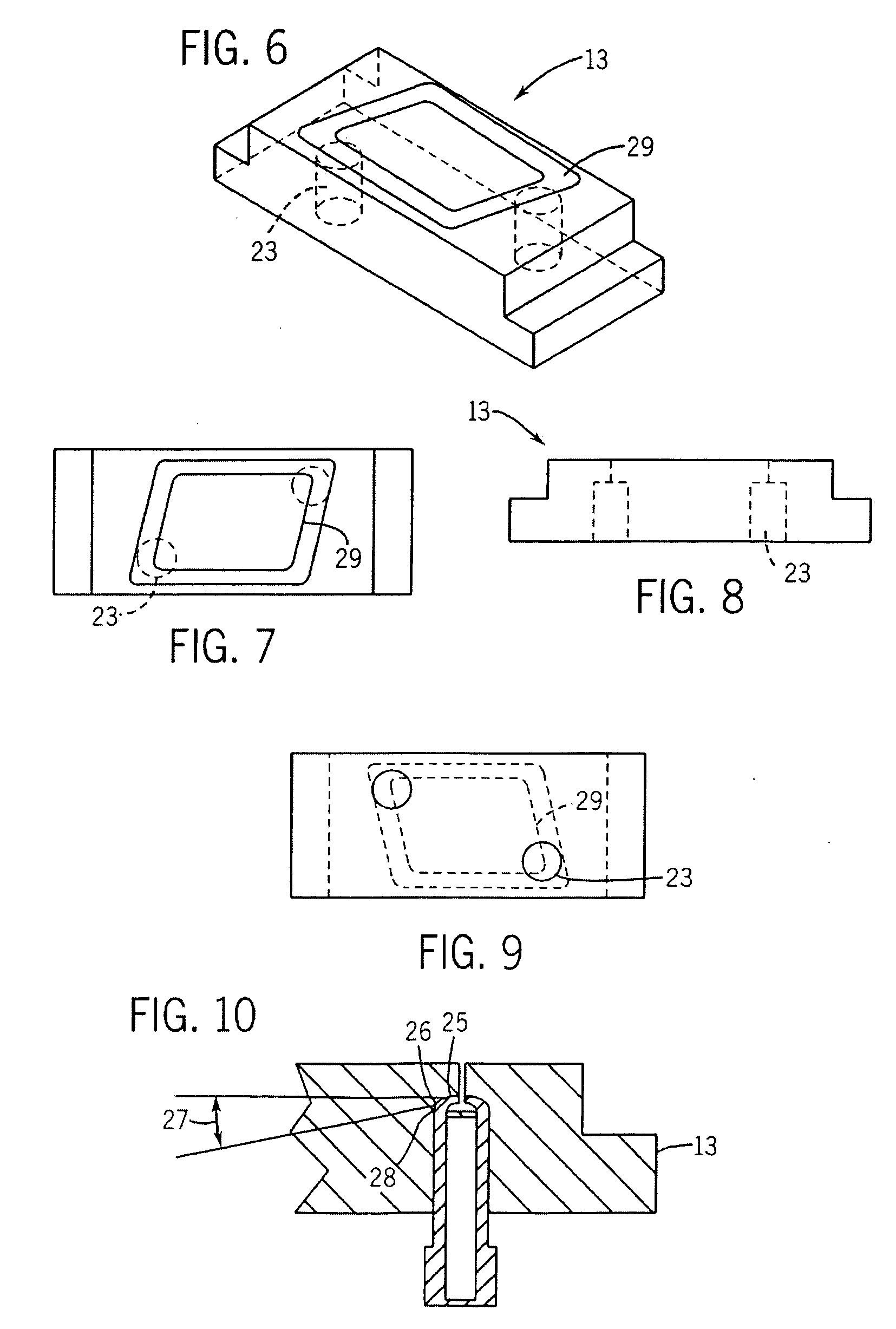Microarray synthesis instrument and method
a synthesis instrument and microarray technology, applied in the field of microarray synthesis instruments and methods, can solve the problems of long processing time, relatively high cost and long processing time, and the conventional sequencing of dna using electrophoresis is typically laborious and time-consuming, and achieves the effect of reducing reflected light, reducing the number of unfavorable reactions, and reducing the cost of fixed processing tim
- Summary
- Abstract
- Description
- Claims
- Application Information
AI Technical Summary
Benefits of technology
Problems solved by technology
Method used
Image
Examples
Embodiment Construction
[0025] The present invention is an improvement to the type of maskless microarray synthesizer described in the above-mentioned PCT Patent Application No. 99 / 42813, the disclosure of which is hereby incorporated by reference.
[0026] In making a maskless array synthesizer, deposition of nucleic acids is determined by light deprotection of areas of the array. Since the application of light energy determines where the nucleic acids are deposited in the array, the precise control of light is a critical parameter in the quality of the array made. In fact, in making instruments intended to produce high quality arrays with optimal sequence uniformity and consistence in the DNA probes, the control of “stray light” has been found to be among the most important parameters. Stray light, as used here, refers to light which is incident onto areas of the array where is it not desired. Said in other words, stray light is light incident on a cell of the array which is supposed to be unlit at a parti...
PUM
| Property | Measurement | Unit |
|---|---|---|
| wavelengths | aaaaa | aaaaa |
| refractive index | aaaaa | aaaaa |
| refractive index | aaaaa | aaaaa |
Abstract
Description
Claims
Application Information
 Login to View More
Login to View More - R&D
- Intellectual Property
- Life Sciences
- Materials
- Tech Scout
- Unparalleled Data Quality
- Higher Quality Content
- 60% Fewer Hallucinations
Browse by: Latest US Patents, China's latest patents, Technical Efficacy Thesaurus, Application Domain, Technology Topic, Popular Technical Reports.
© 2025 PatSnap. All rights reserved.Legal|Privacy policy|Modern Slavery Act Transparency Statement|Sitemap|About US| Contact US: help@patsnap.com



